Life in Egypt appears eerily normal, despite reports that the government is now silencing critics abroad as well as at home, but tourism must go on to help shore up a troubled economy.
William Carruthers
I just got back from Luxor, Egypt. I visited immediately after the New Year’s rush; my hotel was virtually empty, although I was assured that it had been full the previous week, when tour buses were still thundering up and down the road to the Valley of the Kings. For many in the city — and the country — this makes for good business: inflation is distressingly high (Reuters reported that it was 21.3% in December, although some estimates are much higher), and there is a shortage of hard currency that the presence of foreign tourists helps ameliorate. Yet it is also in accordance with the government’s approach to tourism that Luxor has been taken to pieces and rebuilt, making dependence on tourist money more necessary: parts of the center of town have been ripped out entirely and are now devoted solely to the tourist dollar.
Late 2021 saw the opening of the “Avenue of the Sphinxes” between Karnak and Luxor temples: a revivification of an ancient processional way lined with sphinx statues on pedestals. The project to excavate the avenue in its entirety — its southern terminus at Luxor had already been dug at various points from 1949 onwards — had started in the years before Egypt’s 2011 revolution, but had then been put on hold. It was only under the Abdel Fattah el-Sisi regime’s rush to undertake major development projects in the country that work on the avenue was finished. The route opened with a spectacular party and Sisi himself in attendance.
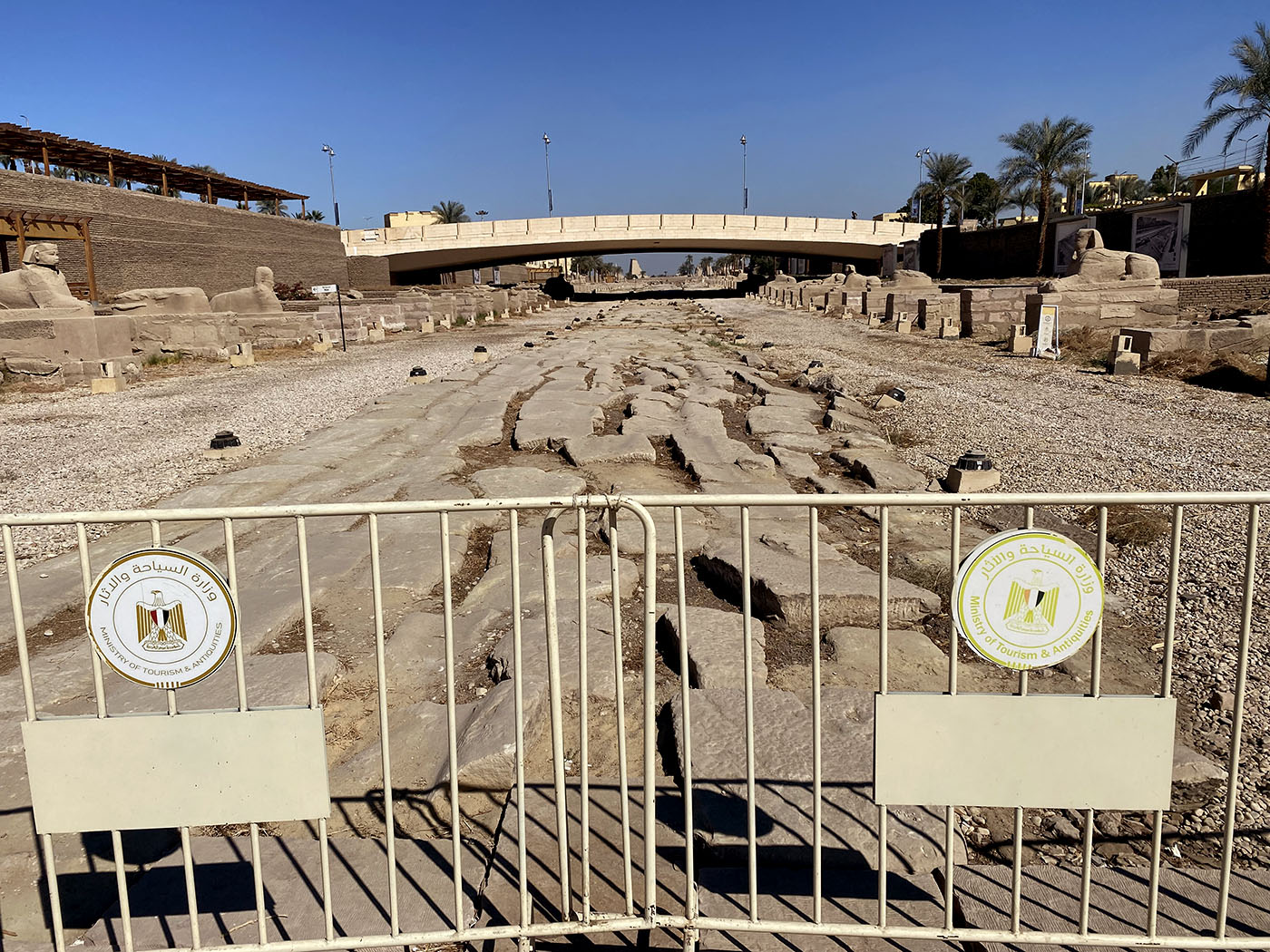
The avenue stretches some 2.7 kilometers, and is sunk three meters below contemporary Luxor itself. I walked down about three quarters of it, until a Ministry of Tourism and Antiquities barrier blocked my way. It was a peaceful but dispiriting experience: the parts of Luxor that once stood directly above the route — houses, shops, cemeteries — had been demolished to make way for it, yet most of the pedestals on the avenue bore no sphinxes at all. The life of the contemporary city roared away above and to my sides, yet down here there were a few other people at best: a negligible crowd for a nugatory sight.
Back towards the Nile, Luxor’s riverside corniche is in the process of being rebuilt by Egypt’s military. This is another in any number of large-scale projects being carried out by an entity that remains unaccountable for its economic interventions, and seems designed to funnel foot traffic both onto and away from the river: the ferry crossing to the Nile’s West Bank, once located right by the tourist entrance to Luxor temple, has been moved further north to an area where, one presumes, the “locals” who mostly use the service won’t be seen to get in the way (although passengers now disembark directly opposite the hospital, which may well be more useful to them). To anyone familiar with the “management plans” enacted at World Heritage sites, this fate will not be a surprise.
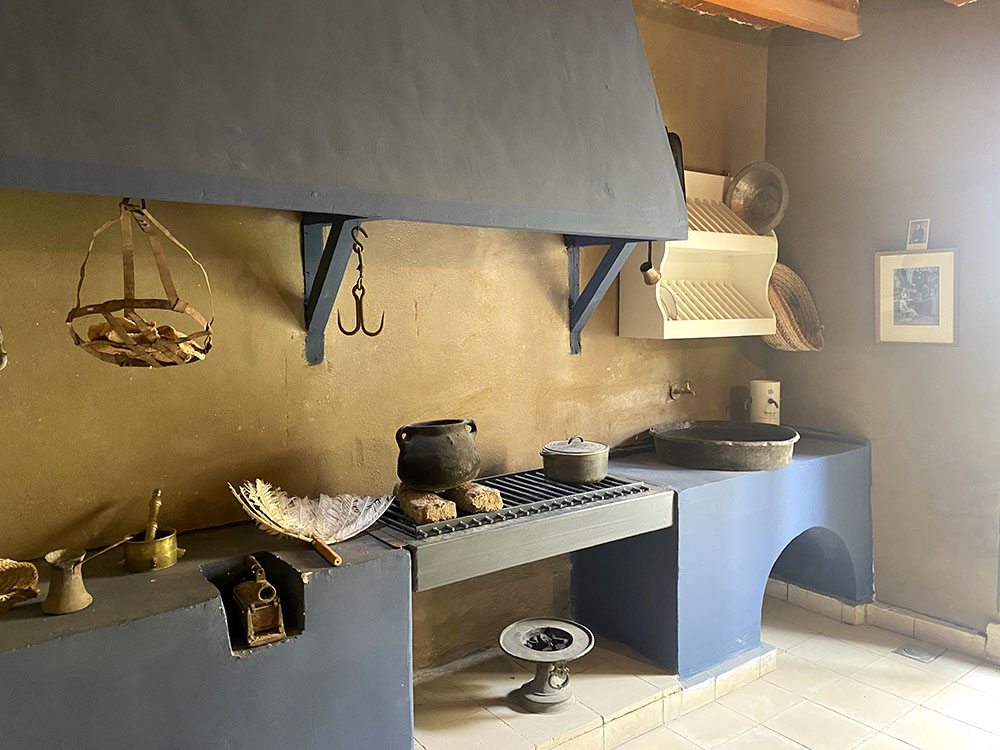
Over on the west bank, things often seemed as quiet as on the east. Other than a small Japanese tour group, I had the newly restored Carter House to myself (take a 3D tour here). The house is located at the point where the road to the Valley of the Kings branches off from the main north-south drag between pharaonic-era mortuary temples; Howard Carter, the British archaeologist and Egyptologist, lived there at points from 1910 onwards. The home was first reopened to visitors in 2009, just after the village that had once lined that main road — and sat on top of ancient burials — had been demolished: authorities had long deemed the population of Gurna, castigated as “tomb robbers,” a problem. This new restoration — opened, predictably, just in time for the 100th anniversary of the opening of the tomb of Tutankhamun — is no less connected to the politics of archaeology.
Still, the house has been restored in a manner both understated and careful. There is a timeline of Carter’s life that doesn’t simply reduce him to Tut, and the Egyptian workmen who did the actual digging in the valley are dutifully acknowledged. Visiting, meanwhile, is a bit like going to one of the more interesting National Trust properties in the UK: from formal rooms to scullery, ticket-holders see everything sympathetically restored. That said, even as the “household staff” are mentioned on the kitchen’s descriptive panel, of course it is Carter who is the center of attention: one presumes there was never any chance that the structure’s later history as a resthouse for Egyptian antiquities inspectors would be deemed museum-worthy.
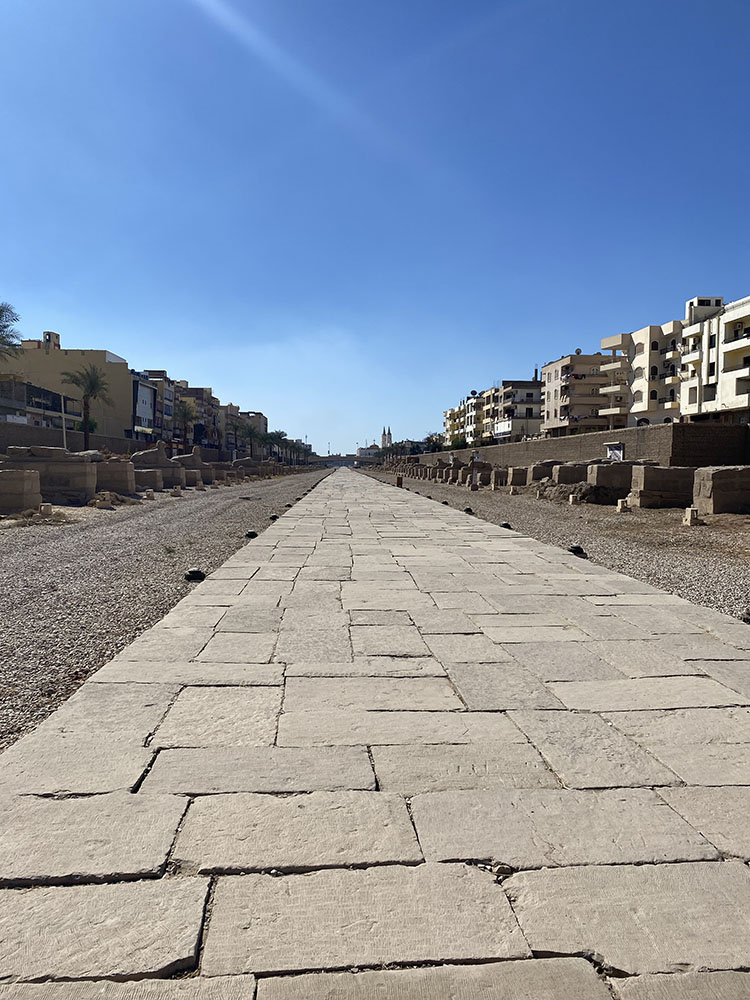
Afterwards, I found myself the only visitor in the replica tomb of Tutankhamun that sits buried in the desert next to Carter’s one-time home. This sort of solitude was decidedly not the desire of those involved in the facsimile’s establishment. Opened in 2014, the copy — designed to induce tourists away from the fast-degrading tombs in the Valley of the Kings itself — was the work of Factum Arte, the Madrid-based conservation company whose recreations create objects “where the line between the digital and the physical no longer exists,” at least so their website claims. The facsimile is uncanny: I would not have realized I wasn’t in the real tomb if I hadn’t been able to see the wall of information panels about the digital scanning process involved in its creation while standing in it. As conservation interventions in Luxor go, however, I don’t think that this will be the last.
The panels in the facsimile explain that Factum’s methods “enable conservators, academics and the public to understand the objects [i.e. the tombs] in deeper and more objective ways.” This is hardly the first time, though, that this sort of claim has been made in relation to pharaonic-era tombs in Luxor. Alexandre Stoppelaere, a Belgian who was one-time chief restorer of Egypt’s Department of Antiquities, was responsible for promoting a pre-digital version of this sort of work in Luxor in the early 1950s, one that duly morphed into the documentary and photographic recording of Nubian temples as the Aswan High Dam threatened to flood them all. There is always another level of objective conservation, always another layer of intervention in the social lives of ancient remains. Factum’s work is mind-boggling, but something will supersede it and keep the heritage enterprise moving: it always does, even as older methods of documentation, paper and photographic, continue to prosper in the background.
Likewise, as the demands of global tourism intensify, so people’s homes will continue to be demolished in order to create a purer, more “authentic” experience of the ancient past. If Luxor shows anything, it is that interventions like these keep on coming, even as tourists themselves seem unimpressed by them. The question, then, is who, if anyone, are these interventions for?



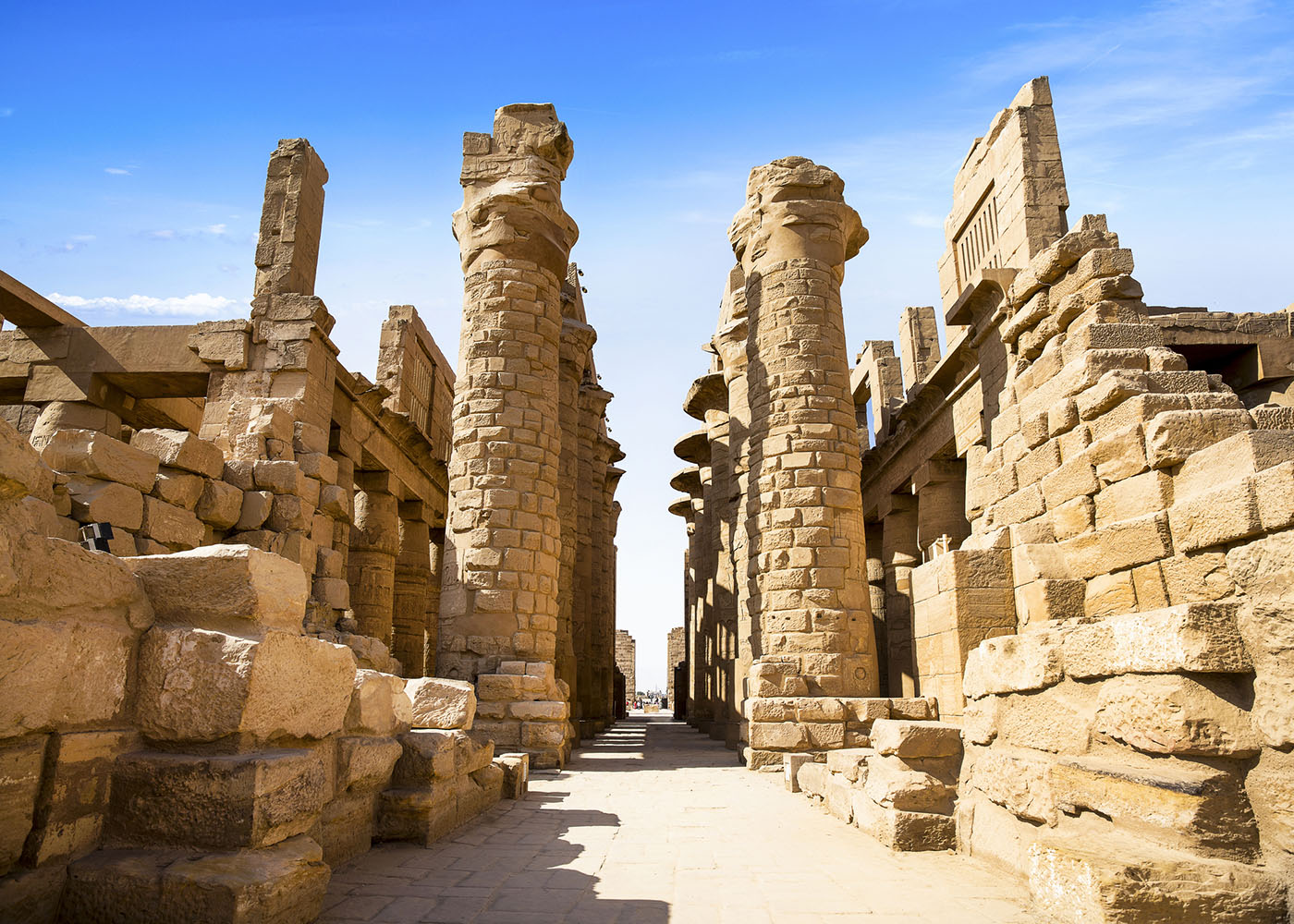








































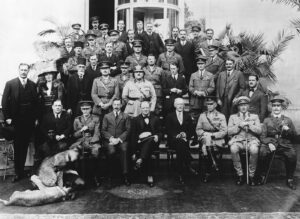





























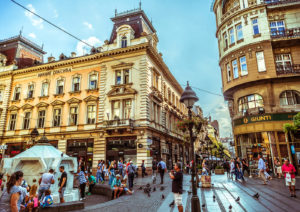















Hello William, My name is Darryl Lawler and I live on the Central Tablelands of NSW Australia. I have just finished reading your well written poignant article on the destruction of Nubian heritage (2/2023) as a result of the Aswan Dam construction and would like to relay to you that I have in my possession a photo album detailing the second heightening of the dam in 1929-1933. Unfortunately there is nothing written as to the photographer/owner of the album nor photo annotations but he has chronicled a vivid account of the Nubian people and their way of life. Kind regards. Darryl.